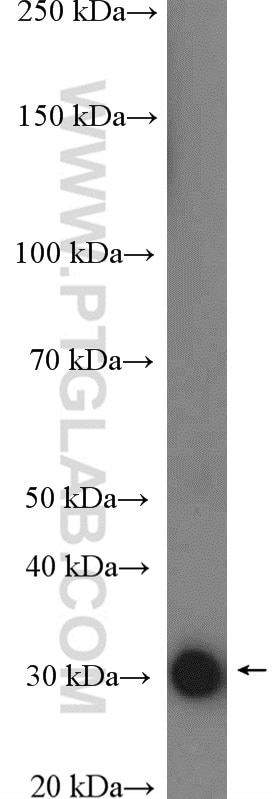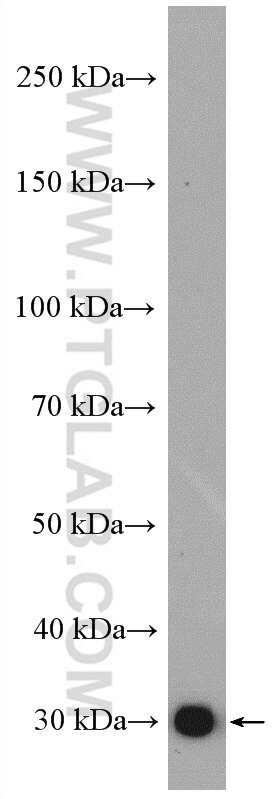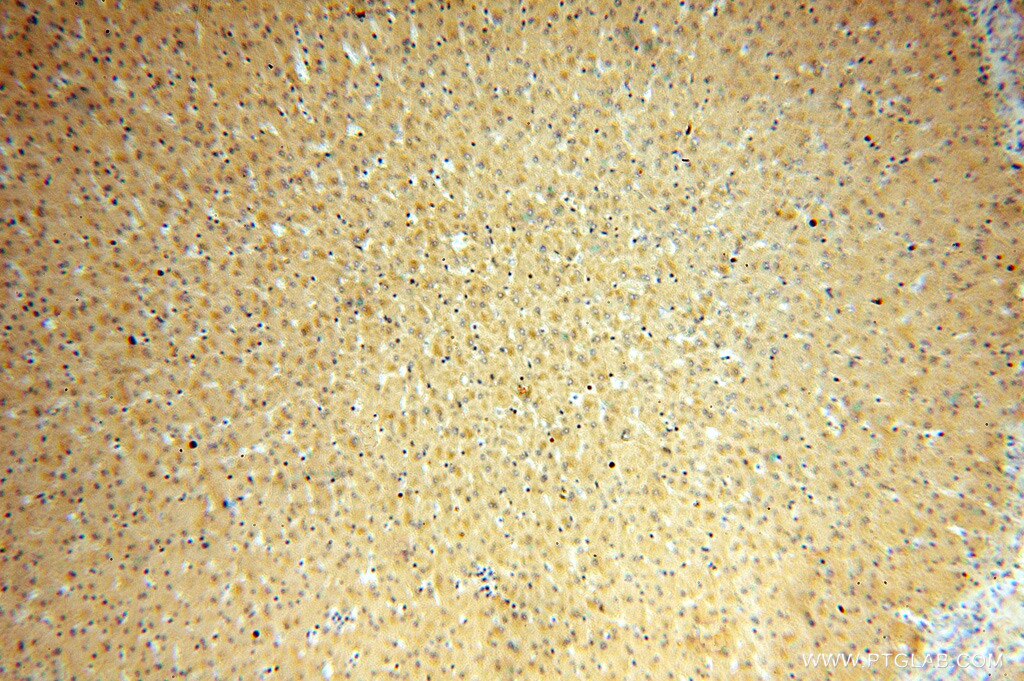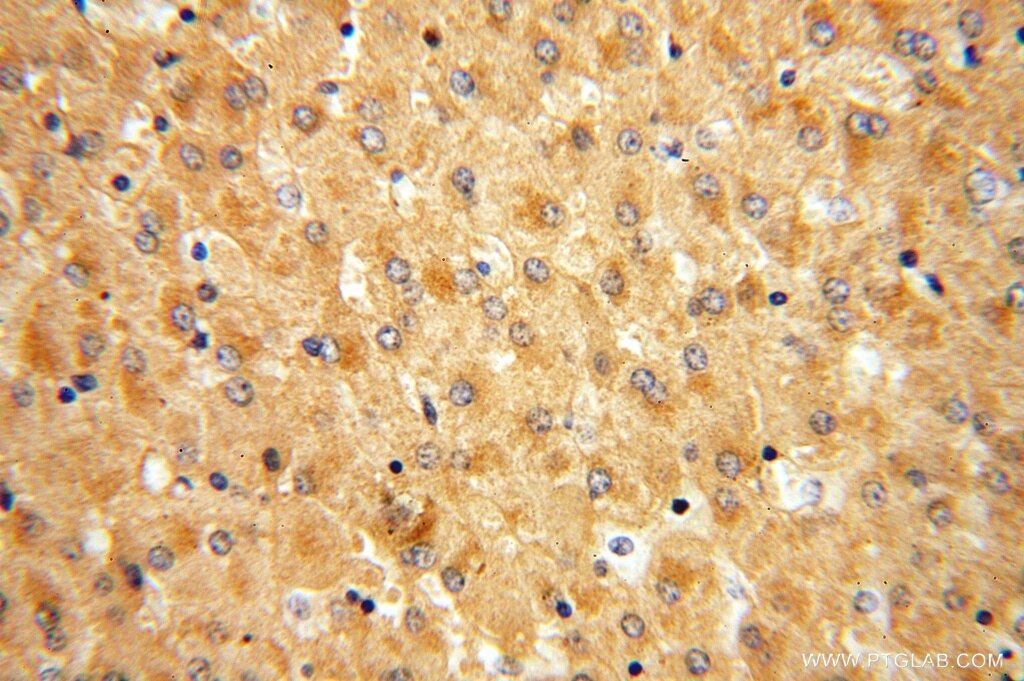APOF Polyklonaler Antikörper
APOF Polyklonal Antikörper für IHC, WB,ELISA
Wirt / Isotyp
Kaninchen / IgG
Getestete Reaktivität
human
Anwendung
WB, IHC,ELISA
Konjugation
Unkonjugiert
Kat-Nr. : 16608-1-AP
Synonyme
Galerie der Validierungsdaten
Geprüfte Anwendungen
| Erfolgreiche Detektion in WB | humanes Plasmagewebe, HepG2-Zellen |
| Erfolgreiche Detektion in IHC | humanes Lebergewebe Hinweis: Antigendemaskierung mit TE-Puffer pH 9,0 empfohlen. (*) Wahlweise kann die Antigendemaskierung auch mit Citratpuffer pH 6,0 erfolgen. |
Empfohlene Verdünnung
| Anwendung | Verdünnung |
|---|---|
| Western Blot (WB) | WB : 1:500-1:2000 |
| Immunhistochemie (IHC) | IHC : 1:20-1:200 |
| It is recommended that this reagent should be titrated in each testing system to obtain optimal results. | |
| Sample-dependent, check data in validation data gallery | |
Veröffentlichte Anwendungen
| IHC | See 1 publications below |
Produktinformation
16608-1-AP bindet in WB, IHC,ELISA APOF und zeigt Reaktivität mit human
| Getestete Reaktivität | human |
| In Publikationen genannte Reaktivität | human |
| Wirt / Isotyp | Kaninchen / IgG |
| Klonalität | Polyklonal |
| Typ | Antikörper |
| Immunogen | APOF fusion protein Ag9824 |
| Vollständiger Name | apolipoprotein F |
| Berechnetes Molekulargewicht | 326 aa, 35 kDa |
| Beobachtetes Molekulargewicht | 30-33 kDa |
| GenBank-Zugangsnummer | BC026257 |
| Gene symbol | APOF |
| Gene ID (NCBI) | 319 |
| Konjugation | Unkonjugiert |
| Form | Liquid |
| Reinigungsmethode | Antigen-Affinitätsreinigung |
| Lagerungspuffer | PBS mit 0.02% Natriumazid und 50% Glycerin pH 7.3. |
| Lagerungsbedingungen | Bei -20°C lagern. Nach dem Versand ein Jahr lang stabil Aliquotieren ist bei -20oC Lagerung nicht notwendig. 20ul Größen enthalten 0,1% BSA. |
Protokolle
| Produktspezifische Protokolle | |
|---|---|
| WB protocol for APOF antibody 16608-1-AP | Protokoll herunterladen |
| IHC protocol for APOF antibody 16608-1-AP | Protokoll herunterladen |
| Standard-Protokolle | |
|---|---|
| Klicken Sie hier, um unsere Standardprotokolle anzuzeigen |
Publikationen
| Species | Application | Title |
|---|---|---|
Cancer Cell Int Bioinformatics combined with quantitative proteomics analyses and identification of potential biomarkers in cholangiocarcinoma. |





